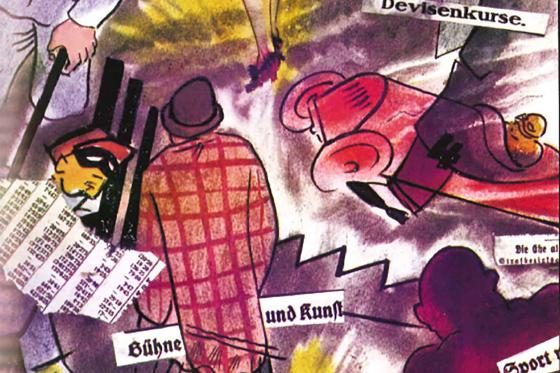The National Players’ production of The Diary of Anne Frank opens next week. Hannah Ensign, our Education Apprentice, sat down with director Raymond Caldwell to hear about his connection to the piece and how this production resonates with the world today.
Did you do any specific research before the rehearsal process started?
LOTS! My directorial process is actually driven by research. I began by reading the actual diary a number of times. I followed that up with research around the time period, holocaust, Judaism, photographic research of Amsterdam/Germany/concentration camps, and biographic research of each person in the annex. That research ultimately informs my communication with designers and actors. Much of that research also finds its way into the production in any number of ways. I also conducted research around the playwright/adapter along with dramaturgical research of the script. Much of that research happened well before I met with the actors or designers.
What was your first experience with the story of Anne Frank?
I was actually born and raised in Germany. Growing up in Germany, we learn extensively about the holocaust. Anne Frank’s story was one of the first autobiographies that I read as a young person. Perhaps the most revelatory experience I had with the story of Anne Frank was tied to a school fieldtrip when I was 9. I remember after reading the diary, my school went to the Stuttgart Ballet to see the ballet of the Diary of Anne Frank. It was perhaps the most beautifully artistic experience, and ultimately has deeply informed my direction of this production.
Do you believe that historical plays such as this one will resonate with modern audiences? If so, how?
I believe that the origins of theatre have always been tied to teaching us the lessons of our ancestors. Historical plays serve a fundamental purpose as they work to bring our past to life before our eyes. These plays resonate with us today because they help activate our imaginations by taking the one dimensionality of history books/Wikipedia, and breathing life into the past. Modern audiences are able to develop greater empathy for historical figures by seeing them in action.
What is unique about directing for the National Players?
There are a number of factors that have made this experience incredibly unique. I have never worked with a company of actors who also are responsible for both technical and administrative components of running the company. This allows for a great deal of community, trust, and support. Additionally, each of the National Players are in unique moments in their careers. Watching them learn and develop confidence is a real joy!
How do you feel your strengths as a director are exemplified in this production?
A major component of my directorial aesthetic has always been theatricality. I am very proud of the music and movement work that we’ve developed to help serve the story. I’m also very excited with the inclusion of people of color in the production. The inclusion of people of color in the play frames the story of Anne Frank for a modern audience and allows for a greater universality.
In what ways has this production challenged you as a director?
I think Anne Frank’s story is so well known, and so vitally important that I felt a lot of pressure when developing a directorial concept. While very excited and honored, the largest challenge I had was subverting the audience's expectations. I imagine as folx are reading “The Diary of Anne Frank,” they might not imagine the story the way we’re telling it. It’s that subversion that I think is so important when presenting historical narratives.
Box Office: 301.924.3400
Open Wednesday - Sunday: 12:00 PM - 6:00 PM
Save 15% on Weeknight Performances
Use the code WEBSITE15 at checkout to save 15% on Wednesday, Thursday, and Friday night performances of Hello, Dolly! through January 2*.
*All sales final. Not valid on previously purchased tickets. Cannot be combined with any other offer. Limit 4 tickets per household. 1 order per household. Only valid on weeknight performances of Hello, Dolly! through December 19. Offer valid while supplies last.
Purchase Now





